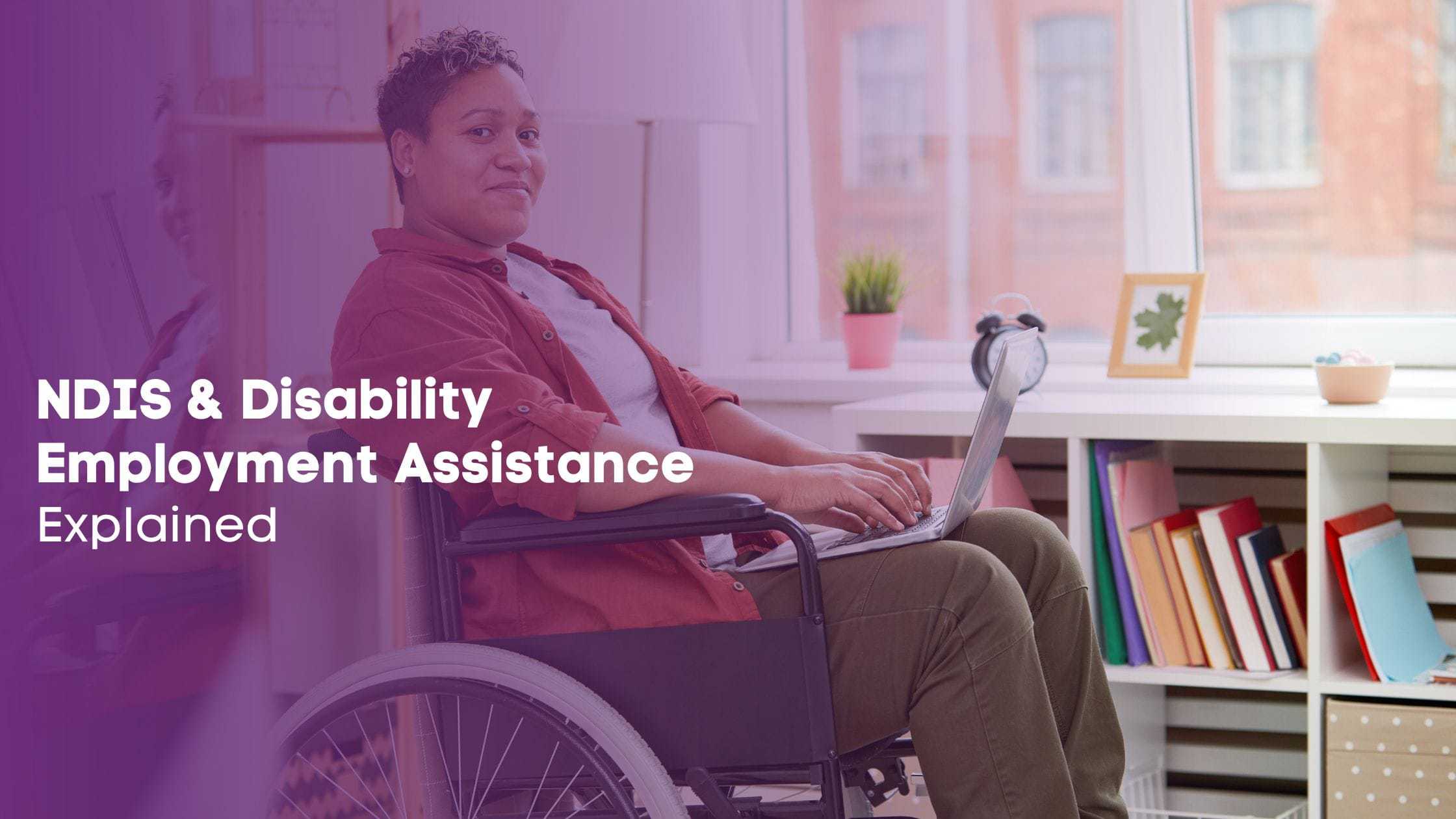Gaining meaningful and satisfying employment is a key goal for many NDIS participants. However, entering the workforce with a disability can present unique challenges.
The good news is that the NDIS provides a variety of supports to address barriers, boost employability, and set you up for success at work.
This comprehensive guide explores the ins and outs of accessing disability employment services through your NDIS funding.
What Employment Assistance Can NDIS Provide?
The NDIS offers a spectrum of evidence-based, individualised employment supports based on each participant’s aspirations, needs and choices. Here are some of the main services that can be funded:
Pre-Employment Preparation
- Resume and interview skills training
- Job application support
- Workplace conduct and expectation coaching
- Travel training for using public transport to get to workplaces
- Manual handling training for any required lifting/carrying tasks
- Computer skills training and digital literacy improvement
Job Search Assistance
- Help locating suitable job vacancies that match interests and abilities
- Liaising with employers and advocating on behalf of job seekers
- Referrals to relevant openings through Disability Employment Services (DES)
- Applying for jobs and coordinating interviews
Post-Placement Job Coaching
- Workplace skills development and on-the-job mentoring
- Customised job coaching to implement required workplace modifications
- Support with managing workplace issues as they arise
- Building natural workplace support and mentoring relationships
Assistive Technology for Work
- Ergonomic equipment like chairs, desks, headsets
- Modified computer hardware and software like screen readers
- Mobility devices customised for the workplace
- Communication devices to enable verbal interaction
Workplace Modifications
- Architectural changes like ramps, elevators, doors
- Adjustable or specialised work furniture
- Accessible parking spots
- Modified bathroom facilities
- Lighting changes and noise reduction strategies
- Adjusting work schedules, flexible hours
Ongoing Employment Support
- Maintaining employment through ongoing periodic support
- Assistance with changing roles as required
- Support during periods of absence or leave
Transition to Work Programs
- School Leaver Employment Supports (SLES)
- to find employment after finishing school
- Australian Disability Enterprises (ADE) for transitional paid work opportunities
- School-based apprenticeships and traineeships to build skills
How Do I Access These NDIS Employment Supports?
Firstly, think clearly about your employment aspirations and goals during NDIS planning meetings. Voice any barriers you anticipate and specific supports that would enable your work success.
Request that funded employment assistance be added to your plan, citing examples of services above that match your needs. Provide supporting evidence like letters from doctors or therapists discussing your capacity and requirements.
Nominate preferred Disability Employment Service (DES) providers or job coaches to deliver services. Get quotes for assistive technologies or workplace modifications you need. Discuss the need for transport assistance or training to build skills.
At yearly plan reviews, evaluate employment progress. Highlight any remaining barriers. Update goals and request further support as required. The more strategic you are in leveraging NDIS funding, the more empowered your employment journey.
Conclusion
NDIS provides comprehensive support across the employment process for participants with disabilities. This ranges from the initial preparation to maintaining meaningful work. Strategically utilise your allocated funding to access the full spectrum of evidence-based disability employment services. With the right assistance, you can gain employment that fulfils your personal definition of success. For better assistance in this matter, always count on your NDIS Service Providers.










